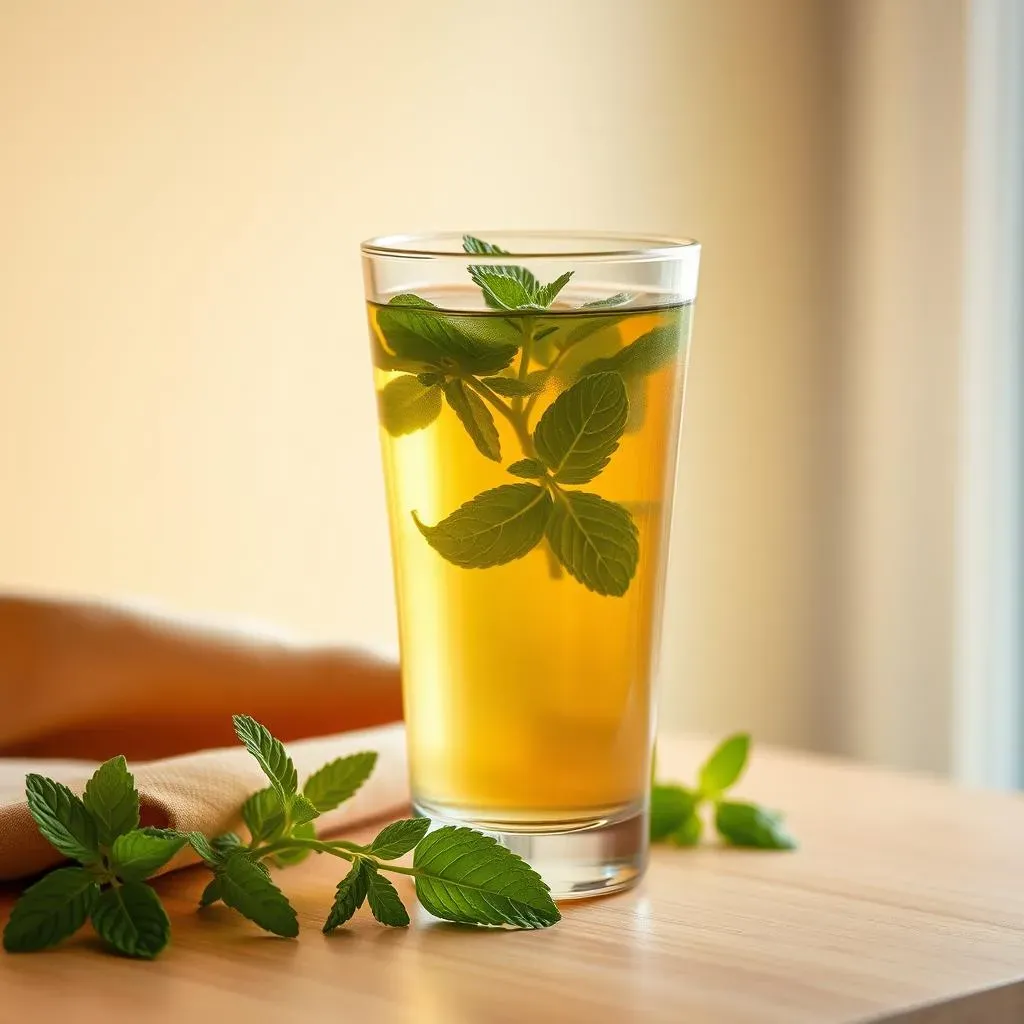Table of Contents
Is your liver feeling a little sluggish? You're not alone. Many of us are searching for natural ways to support this vital organ, and that's where spearmint tea comes in. You might know it for its refreshing taste, but could it also be a secret weapon for your liver? This article will explore the potential of spearmint tea, especially the best spearmint tea for improving liver function. We'll look past the hype and dive into what the science actually says. We'll cover how this simple brew might help your liver, what to look for when buying it, and how to make it part of your daily routine. We will also address some of the most common questions regarding the use of spearmint tea for liver health. So, grab a cup, get comfortable, and let’s find out if spearmint tea is the liver-loving beverage you've been searching for.
Is Spearmint Tea a Liver Savior?
Is Spearmint Tea a Liver Savior?
Okay, so you're wondering if spearmint tea is some kind of magical liver potion, right? I wish it were that simple! The truth is, while spearmint tea isn't going to instantly fix a severely damaged liver, it does have some properties that could lend a helping hand. Think of it more like a gentle nudge in the right direction. See, your liver is a hard worker, constantly filtering out toxins and keeping things running smoothly. When it gets overloaded, it can become sluggish, and that's where the potential benefits of spearmint tea come into play. It’s not a cure-all, but it might be a nice, natural way to offer some support. It's like giving your liver a little spa day, not a full-blown surgical intervention. So, let's look at what it actually does.
How the Best Spearmint Tea Benefits Your Liver
How the Best Spearmint Tea Benefits Your Liver
Alright, let's get into the nitty-gritty of how the best spearmint tea for improving liver function actually works. It's not like it has tiny little workers going in there with scrub brushes, but it does have some compounds that can be beneficial. First off, it's packed with antioxidants. These little guys are like the cleanup crew, helping to neutralize harmful free radicals that can cause damage to your liver cells. Think of it as an army of tiny protectors, battling the bad guys. Spearmint also has anti-inflammatory properties, which can help reduce swelling and irritation in the liver. When your liver is inflamed, it can't function as well. So, reducing that inflammation can help it get back to its job. It’s like taking the pressure off, allowing it to breathe a little easier.
Benefit | How it Helps the Liver |
|---|---|
Antioxidants | Neutralize harmful free radicals, protecting liver cells. |
Anti-inflammatory | Reduces swelling and irritation, improving liver function. |
Now, it's important to remember that this is not a miracle cure. If you have serious liver issues, you absolutely need to see a doctor. But if you're looking for a gentle, natural way to support your liver, spearmint tea might be a good addition to your routine. It's like adding a little extra love to your daily self-care. It's worth mentioning that most studies have focused on spearmint extract or essential oils, not tea specifically. So, we’re still learning, but the initial findings are promising. It's all about making informed choices and being proactive about your health. Plus, it’s a tasty way to stay hydrated!
Choosing the Best Spearmint Tea for Liver Health
Choosing the Best Spearmint Tea for Liver Health
Okay, so you're convinced that spearmint tea might be a good idea for your liver, but how do you choose the best spearmint tea for improving liver function? It's not like they're all created equal. First, you want to look for quality. Opt for loose-leaf tea or tea bags that contain whole or coarsely cut leaves. This means you're getting more of the good stuff and less of the dust and stems. Think of it like buying fresh produce, you want the vibrant, whole pieces, not the wilted, broken ones. Also, check the label to make sure it's pure spearmint, with no added flavors or other herbs. You want to be sure you're getting the real deal. Some brands will mix it with other things, which can dilute the potency. It's like ordering a coffee and it’s half-filled with water, you want the pure, concentrated flavor.
Another important factor to consider is whether it's organic. Choosing organic spearmint tea reduces your exposure to pesticides and other chemicals. These can put extra stress on your liver, which is the opposite of what we’re trying to achieve. It's like choosing a clean, well-lit path instead of a dark, muddy one. The source of the spearmint matters too. Some regions are known for producing higher quality herbs. Do a little research on the brand and see where they get their spearmint. It's like knowing where your favorite coffee beans come from, it adds to the experience. Finally, consider the packaging. You want something that's airtight and blocks light to maintain freshness, like storing your spices in a cool, dark place. You wouldn't leave your herbs in the sun, would you? When you are at the store, also check the expiration date, this is very crucial to get the best tea. By keeping these tips in mind, you can ensure you’re choosing the best spearmint tea for your liver and overall health.
Factor | What to Look For |
|---|---|
Leaf Quality | Loose-leaf or coarsely cut leaves |
Purity | 100% pure spearmint, no additives |
Organic | Certified organic if possible |
Sourcing | Reputable regions known for quality herbs |
Packaging | Airtight and light-blocking packaging |
The Final Sip: Is Spearmint Tea Right for Your Liver?
So, while spearmint tea isn't a magic bullet for liver problems, it does show promise as a supportive beverage. It's packed with antioxidants and has some evidence suggesting it can help with inflammation, which are good things for overall health. If you're considering adding it to your routine, remember that the best spearmint tea for improving liver function is often the simplest: pure, high-quality leaves. Be sure to check with your doctor, especially if you have existing health conditions. And when all is said and done, spearmint tea can be a tasty, hydrating addition to a healthy lifestyle. It's not a cure all, but it might just be the little boost your liver needs.
